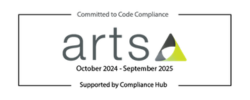Global effort to reduce suicide in people with diabetes
.jpg/fit-in/700x9999/filters:no_upscale())
An international collaboration to tackle rates of suicide and self-harm in people with diabetes will be the subject of one compelling workshop at this year’s DPC.
Suicide is approximately twice as prevalent among people with diabetes – however, this figure is believed to be much higher due to challenges around identification and coding of events. One study found that adolescents and young adults with type 1 diabetes have 61 per cent higher odds of reporting suicidal thoughts than those without diabetes. While adolescence is a considerable risk factor for suicide, it affects people across all ages and gender.
The DPC workshop, ‘Suicide, Self-Injury and Diabetes – a multi-pronged approach by the FDA RESCUE Collaborative Community’, will address this important but poorly understood subject, highlighting the key issues and the different ways they are being tackled.
In addition, the session will present the results of a survey of healthcare professional perspectives on depression and suicide amongst people with diabetes:
- The vast majority of HCPs believed that routine diabetes visits are an appropriate place for discussions about depression and suicidal ideation;
- Most HCPs are at least moderately comfortable asking patients about self-harm or suicidal ideation, though some were uncomfortable and expressed concerns about lacking the knowledge or resources to provide support;
- Less than one-fourth of HCPs had specific postgraduate training regarding self-injury and suicide;
- Most HCPs had access to social workers and/or psychologists who could address patients’ psychosocial concerns.
The FDA RESCUE Collaborative Community (REducing SuiCide rates amongst individUals with diabEtes) was established after the US Food and Drug Administration approached Katharine Barnard-Kelly, a Professor of Health Psychology, to set up an international community of key stakeholders and experts to focus on this issue.
Professor Barnard-Kelly said: “The goal of the FDA RESCUE Collaborative Community is to reduce rates of intended self-injury and suicidal acts by people with diabetes through improved understanding of risk factors and the implementation of strategies to address them.
“We have a multi-faceted approach including, but not limited to, research, education, messaging and improving identification/coding. To this end, we will be reporting data from our initial research and providing insights into the enormity of the challenge and what we are doing to address it.”
At the DPC workshop, three expert speakers will talk about the different aspects of the work of the FDA RESCUE community:- Katharine Barnard-Kelly
Visiting Professor – Southern Health NHS Foundation Trust
Prevalence, challenges with identifying those at risk and the goals of RESCUE Collaborative Community
- Richard Holt
Professor in Diabetes and Endocrinology - University of Southampton
Evidence review and data from HCP study on support available and unmet needs
- Simon O'Neill
Director of Health Intelligence - Diabetes UK
How stakeholders are working together to improve outcomes across industry/advocacy, regulatory, people with diabetes and healthcare professionals
Where to hear this talk:
Theatre: Workshop 1
Date: 11/11/2021
Time: 10:10 AM – 11:00 AM
Visit here for more details.



)
)
)
)

)
)
.jpg/fit-in/1280x9999/filters:no_upscale())
.png/fit-in/1280x9999/filters:no_upscale())
)
)
)
